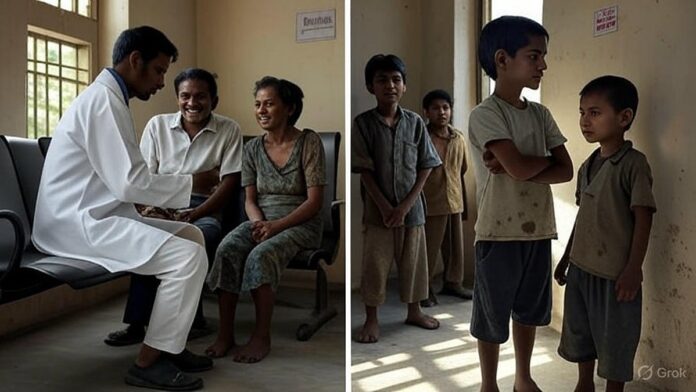New Delhi- As India prepares for its much-anticipated caste census, it would be relevant to discuss a groundbreaking study that exposes the deep-seated discrimination faced by Dalit communities in accessing healthcare across South Asia.
Published on May 24, 2021, in the Asia Pacific Journal of Public Health, this research by Raksha Thapa, Edwin van Teijlingen, Pramod Raj Regmi, and Vanessa Heaslip analyzes nine studies to reveal how caste-based inequities, compounded by poverty and cultural barriers, systematically deny Dalits, historically labeled as “untouchables”—their right to healthcare. A large number of Dalits in rural areas in India are deprived from or are refused access to health services due to their social status.
Typical discriminatory behaviors include refusing to enter Dalits’ houses or allowing them into your house, share food and water, seating places, transport, and generally refusing to touch. Health discrimination is likely to be seen mainly in areas where care is provided, which can be health centers or a patient’s own home.
The findings highlight a harsh reality: despite legal efforts to dismantle caste hierarchies, discriminatory practices persist, severely impacting Dalit health and well-being. This study strengthens the case for India’s caste census, which could be a vital step toward understanding and addressing these inequalities.

